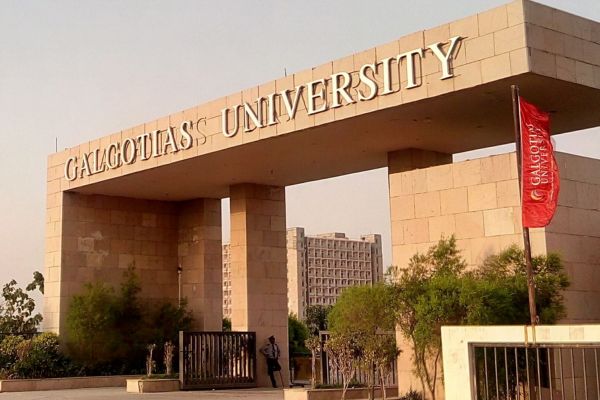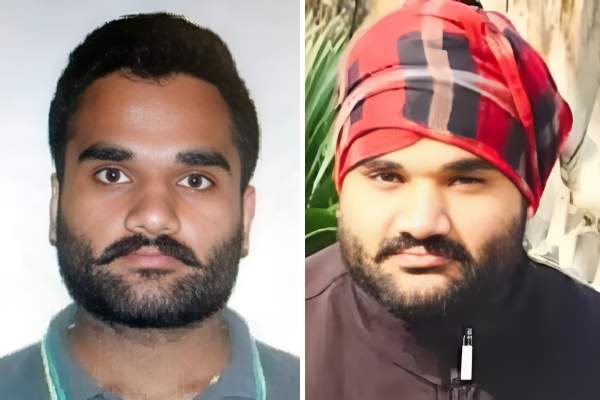India News
Can India Ignore its Caste Realities While Relaxing Labour Laws?

It was the “freedom of contract” which had ruined the concept of parliamentary democracy, Dr BR Ambedkar said in 1943. “Parliamentary democracy took no notice of economic inequalities and did not care to examine the result of freedom of contract on the parties to the contract should they happen to be unequal. It did not mind if the freedom of contract gave the strong the opportunity to defraud the weak,” he said.
The Dalit icon’s words hold increased relevance today, as various Indian states dilute the very labour laws he fought so hard for, during a worldwide pandemic.
Uttar Pradesh had previously suspended all but four labour laws. It revoked the order later, after a notice by the Allahabad High Court.
But other states were quick to step in with labour law relaxations of their own: mandating longer working hours, lax or no government inspections, and dilution of unions, among other things. One of the reasons being put forth for these moves is attracting more investment by increasing labour flexibility.
This comes at a time when India is witnessing a spiralling migrant crisis. Visuals of hungry, poor, and disabled workers walking thousands of kilometres to get to their homes amid the Covid-19 lockdown are now commonplace, and a large section of them belong to marginalised communities.
According to Suraj Yengde, a Dalit scholar with the Harvard University and author of ‘Caste Matters’, of the 395 million intrastate migrants in India, approximately 62 million are Dalits and 31 million are Adivasis. “Can you imagine that?” he says.
“People ask why they (migrants) are walking? That’s because they are forced to this exhaustion,” he says, explaining that migrants often walk kms daily to their work site, subject to difficult circumstances.
“On their return, they face diluted or suspended labour laws,” says Aruna Roy, co-founder of the Mazdoor Kisan Shakti Sangathan (MKSS) and president of the National Federation of Indian Women.
“Oppressed already both by class and caste, discrimination against the migrant labour, daily wage workers, factory and informal sector workers, will be further entrenched by downgrading their rights.”
Professor Khalid Khan from the Indian Institute of Dalit Studies says the share of casual labour who don’t enjoy any social and job security is the highest among scheduled tribes (STs) and scheduled castes (SCs).
“Casual labour makes up 21% of total workers overall but among these, 29% are STs, 39% SCs and 26% Muslims. A similar pattern is observed in states like UP, Haryana, Himachal Pradesh, and Madhya Pradesh: states where these changes have been announced,” he says.
He also points out that the share of regular salaried workers with long-term contracts and social security is already lower among underprivileged groups.
The proposed changes may further worsen their condition in terms of increased working hours, and provision of basic amenities, Prof Khan says.
‘No Better than Bonded Labour’: Deadlier Workplaces?
Among the states that have come up with labour law changes is Madhya Pradesh. The state’s ordinance has heavily relaxed inspections. According to a report by ET, there will be no factory inspections for three months, no inspections for companies with less than 50 workers. Third-party inspections will also be allowed.
Will relaxations of this nature result in deadlier workplaces for marginalised communities?
According to the All India Central Council of Trade Unions (AICCTU), the watering down of the inspection system has been going on for some time now, especially by the central government.
“They brought about a new ‘inspection scheme’ which curtailed surprise inspections,” AICCTU says. Without the security of tenure, workers become afraid to complain and inspections are important to ensure some level of compliance with the law, the labour body says.
The National Front of Indian Trade Unions (DHN) echoes this perspective. According to Dr Deepak Jaiswal, vice-chairman of the labour body, the relaxations will yield more authority to the employer.
“Weaker sections were already hit. But there was a forum, and with its death, everything will become one-sided,” Jaiswal says. “Jungle raaj ho jayega (it will be like the law of the jungle),” he warns.
And with occupational segregation that accompanies the labour of downtrodden communities, these hazards are ever-present.
According to a report by The Print, the union ministry of social justice and empowerment (MSJE) revealed in an answer to a question by Nationalist Congress Party (NCP) Rajya Sabha member Vandana Chavan, that 282 sanitation workers
“Even with stringent conditions for inspection, they sidestepped their obligations; without legal obligation, the worker will be no better than a bonded labourer,” Roy says.
She points out that the worker is further disadvantaged by entrenched social discrimination, including caste discrimination, and socio-economic realities.
“There is no doubt that the treatment of the SC worker, who already feels the brunt of job and wage insecurity, will worsen when her or his rights and protections are taken away,” says Roy.
MLA Jignesh Mevani from the Vadgam constituency of Gujarat affirms that “oppressed castes” will be the biggest sufferers of these changes. Workers are already facing hunger, discrimination, as they walk with blisters on their feet, the legislator says.
“Now they have legalised 12 hours of work. The workers may even be made to work for 14 hours. If there is violence in a private factory or establishment, how will we get to know? These things hardly come out,” he says.
Yengde says when industrial accidents happen due to oversights and relaxed inspections, ex-gratia payments become a way for the state to assuage those affected and tone down legal reproach. “Their (authorities’) family members have not died,” he says.
‘It Will Strengthen the Caste System’
“The caste system is not merely a division of labour but also a division of labourer, as convincingly argued by Dr Ambedkar,” Prof Khan says.
He points out that while the caste system is justified on the ground of division of labour, the fundamental feature of institutions of caste is the restriction of choice of occupation. This is imposed based on circumstances at birth.
He sheds light on the concept of meritocracy and upward mobility in India: “In its ideal form meritocracy might ensure everyone gets an equal chance of getting into privileged occupations. But in a caste-ridden society like India, meritocracy cannot work.”
There are two reasons for it, he says. First, that caste-based networks play an important role in getting jobs which favour a candidate from a privileged background more. Second, access to education in general and the quality of education is highly unequal.
In the context of such labour law changes, AICCTU points out that by hitting at the wages earned by workers and restricting the same, any possibility of upward mobility is curtailed.
Upward mobility is defined as the capacity or facility for rising to a higher social or economic position. However, in India, the shackles of caste often prevent marginalised communities from rising up the ladder.
“By keeping workers in conditions where they are unable to earn adequately, and through a steady process of privatisation of all basic services such as education, it becomes more difficult for even future generations to come out of the hereditary occupation,” the labour body says.
Yendge points out that, within the workforce, marginalised communities are often not taught other skills, as that would result in their empowerment.
According to Roy, a shocking 98% of safai karamcharis
“Other work that is typically done by SCs or STs such as sweeping, garbage collection, cleaning, factory work, etc, is also devalued,” Roy says.
Mevani is of the opinion that if a pro-people, pro-worker socialist economy is favoured, then Dalits would not be the only ones to carry out sanitation jobs. There would be professionalisation of different works.
But if more exploitative, capitalist tendencies are unleashed by the state, he says, then the jobs which certain sections have been historically subjected to would continue, thus strengthening caste stratification.
“Most Dalits, tribals, and OBCs are landless labourers. So when both the big farmers, and the small and marginal farmers suffer due to a failing economy, it is the Dalits and tribals to more brutalities and economic exploitation,” he explains.
“It will strengthen the caste system,” he warns.
Professor Rajendra Prasad Mamgain, from the Giri Institute of Development Studies, who specialises in labour economics, says that his work on recruitment processes shows that even while entering into the formal labour market, one has to have a social network.
“Even when you are coming to the city, you need a social network. And not everyone can migrate to the cities. With informalisation, the insecurity of labour is increased,” he says.
According to him, these labour relaxations will dampen the morale of workers. “If the employer is heavy on you, you cannot raise your voice.”
This, Prof Mamgain says, will result in workers switching more jobs until they find a humane employer, who will provide proper compensation/social security. And it will limit the mobility of occupations for SCs and STs.
Roy underscores the current situation, and feels that it should teach us a lesson: “The economic distress caused by the Covid-19 lockdown should show us that all work has value, and all workers should be treated with dignity, given decent wages as well as livelihood and social security.”
But Will this Even Yield the Desired Results?
Disaster capitalism. This is what Prof Mamgain says Indian states are carrying out, by relaxing labour laws.
The term was popularised by a 2007 book, ‘The Shock Doctrine: The Rise of Disaster Capitalism’, written by Canadian author and social activist Naomi Klein. The theory states that disasters (such as pandemics) provide perfect conditions for governments to carry out questionable policies, while citizens are too distracted to have a proper response to them.
Meanwhile, criticism grows. The International Labour Organisation, after previously condemning India’s labour law changes, has now urged Prime Minister Narendra Modi to send a clear message to the central and state governments to uphold India’s international commitments (conventions based on labour laws) and engage in social dialogue.
The debate deepens, while one question becomes pertinent: is all this even worth it?
Prof Mamgain is of the opinion that a healthy and virtuous cycle of economic development cannot be created until conditions for effective demand, and better purchasing power are, too.
“Whatever they (states) are doing, it will have a great retrogressive effect on labour. They cannot demand raise in wages. The moment they do so, they will be made to sit down,” he says.
What will that finally do? As their right to demand better wages decreases, and competition culls their daily due, with inflationary pressure, their net income will go down, and so will their living standards, he explains.
Prof Mamgain mentions that there are two types of capital—good, and bad. “There are Japanese enterprises that are delegating work in areas of Gurugram and Manesar. They respect labour laws. India should demonstrate that model, where the worker is not a mere servant but the owner also.”
Coercive measures can be employed to increase the profit, but it will not be good for the long run. “They (employers/industries) will learn from this crisis,” he says.
The professor also underscores the complexity of Indian labour laws. But the industry had learned to live with them, he says.
According to a study conducted by him, “law and order problem” was one of the biggest issues industries faced amid capital generation. Labour laws, Prof Mamgain says, were much farther up the list.
This takes one back to NFITU’s warning about a “law of the jungle” situation that could prevail due to these changes, as aggression rises over unmet demands and decreased social security.
It is also not certain these labour law relaxations, which many experts deem a blight on human rights, would help achieve the purpose.
According to a report published by the Firstpost, there are studies that document the lack of a link between protective labour law regimes and stunted economic growth.
The report cites a 2017 study, which observed the performance in certain states like Rajasthan, Uttar Pradesh, and Andhra Pradesh, after employer-friendly relaxations were adopted, from 2014-2015.
There were relaxations in Chapter VB of the Industrial Disputes Act, 1950, the Contract Labour Act, 1970, and the Factories Act, 1948, the article states. However, no impact from these changes was seen on growth, employment, or investment of capital.
Mevani says that India should feed its labour force more; make it healthy and strong. “It will benefit the industries more than this,” he argues.
He also links an increased purchasing power to more production and manufacturing. “There should be a demand from the bottom. Once purchasing power increases, people will go out and buy more industrial output,” the Vadgam MLA says.
Roy says that an exploited, exhausted, sickly and impoverished workforce, receiving a pittance for a 12-hour work day, cannot continue to be productive.
“Workers are human beings with an equal claim to constitutional and fundamental rights. This turnaround brings back the dark ages where the people who were powerless were mere fodder for the rich,” she argues.
She points out that Wipro founder Azim Premji elaborated in an article in ET on how the interests of employers and workers should be more aligned in this time of crisis.
He explained how the dilution and outright suspension of labour laws, without providing social security for the worker, will not increase economic productivity, she says.
“Rather, it is unethical, pits business and workers against one another, and will further create distress for the poor.”
https://pubstack.nw18.com/pubsync/fallback/api/videos/recommended?source=n18english&channels=5d95e6c378c2f2492e2148a2&categories=5d95e6d7340a9e4981b2e10a&query=Can,India,Ignore,its,Caste,Realities,While,Relaxing,Labour,Laws?,coronavirus,labour,laws,&publish_min=2021-05-25T00:53:06.000Z&publish_max=2021-05-27T00:53:06.000Z&sort_by=date-relevance&order_by=0&limit=2
(Note: This is a Article Automatically Generated Through Syndication, Here is The Original Source
Latest News
Galgotias University Students Protest Against ‘Urban Maxwell’ Triggered Meme Fest!

The internet is currently divided following a viral video that showed remarks by students from Galgotias University about Sam Pitroda, the Chair of the Indian Overseas Congress, regarding the ‘inheritance tax’.
As per Business Standard, this incident that has filled the entire nation with laughter took place in Greater Noida. Purposedly, the students of Galgotias University held a protest in Delhi.
Galgotias University Students Rally With ‘Unclear’ Agenda Spark Meme Frenzy
When an AajTak reporter reached the protest site, he questioned the students engaged in the protests. The reporter asked the students the motive behind their protest and the message their placards conveyed.
Students seemed clueless about the questions asked. While responses from other students were even funny and laughable.
Thus, the video showcasing students’ response has gone viral all over the social media platforms. The video has also garnered funny reactions from netizens online.
Meme Fest All Over the Internet
When the students were questioned, their relies on were just a comedy of errors.
One student stated that his motive behind the protest was his desire for a developed India. However, he lacked the basic specifics.
Another student acknowledged that he was clueless regarding the Congress manifesto. Several protestors even struggled to read what was printed on their placards.
When a student was asked to read the slogan written on the placard, the student read ‘urban naxal’ as ‘urban maxwell.’
It seemed that the protest was made to touch a range of issues in the nation, such as women’s empowerment, urban naxalism, NaMo’s stand on mangalsutra and wealth redistribution, inheritance tax and many more. However, clarity remains elusive.
Videos circulating on social media garnered mixed reactions. Some laughed while others their criticism and showed disappointment at the students’ lack of awareness.
Responses received from students even triggered a meme fest all over the internet. Take a look!
Also Read: Christopher Bouie Jr Video: Minor Arrested For Sanford, Florida Shooting Leaving 10 Injured
India News
AstraZeneca’s Covishield To Cause Rare Yet Serious Side Effects

A huge update for those who were a part of COVID vaccination programs! Rare side effects of the vaccination have surfaced, questioned by numerous health experts.
The Economic Times reported that AstraZeneca, the British-Swedish multinational pharmaceutical and biotechnology company, has legally acknowledged that its product, Covishield, can cause certain rare side effects.
AstraZeneca developed Covishield, which was produced by the Serum Institute of India. In India, Covishield was one of the primary vaccines provided to citizens.
AstraZeneca’s Statements
AstraZeneca is currently facing a lawsuit in a UK court. The lawsuit was filed after claims surfaced on the internet that AstraZeneca’s vaccine caused deaths. To date, 51 deaths have been reported, hence 51 cases have been filed against the company.
AstraZeneca finally admitted in one of the court papers that, “Covishield can, in very rare cases, cause TTS.” TTS stands for Thrombosis with Thrombocytopenia Syndrome.
Dr. Rajeev Jayadevan, a medical expert, told ANI,
“TTS is thrombosis with thrombocytopenia syndrome, which is basically a clot in the blood vessels of the brain or elsewhere, along with a low platelet count. It is known to occur in very rare instances following certain types of vaccines and also from other causes. According to the WHO, adenovirus vector vaccines, in particular, have rarely been associated with this condition.”
TTS: About, Diagnosis, Treatment
TTS, or Thrombosis with Thrombocytopenia Syndrome, is a serious yet rare health condition characterized by low platelet counts (thrombocytopenia) along with the formation of blood clots (thrombosis).
Various symptoms associated with TTS include neurological deficits, shortness of breath, leg swelling, abdominal pain, and severe headaches.
TTS can be diagnosed if blood tests are conducted to assess the levels of platelets in the blood. Moreover, to detect blood clots, imaging studies are required, reported the Times of India.
TTS can be treated with a multidisciplinary approach. It includes supportive care, anticoagulation therapy to prevent blood clotting, and hospitalization.
To manage and stabilize platelet levels in the body, plasma exchange and intravenous immunoglobulin (IVIG) can also be performed.
Patients with TTS are prone to severe complications like death and organ damage. Hence, close monitoring of patients by healthcare providers is a must.
Also Read: Online doctor consultations in India increase by 4 times after the Covid-19 pandemic: Report
World
Report: Gangster Goldy Brar Is Alive, Confirms US Police

The prime suspect in the murder case of a famous Punjabi singer, Goldy Brar, is alive, reported TOI.
Goldy is the infamous Canadian gangster who was earlier rumored to be dead in an alleged incident that took place at Fairmont and Holt Avenue last Tuesday.
In the incident, one of the two individuals reportedly got gunshot wound and succumbed to injuries at the hospital. You can read our story about California shooting incident in which Goldy Brar allegedly got shot here.
As per the US police, reports of Goldy’s disappearance were circulating all over the internet on Tuesday. However, the U.S. authorities clarified the rumors of Brar’s disappearance in a California shooting incident are untrue.
The claims were refuted by the Fresno police department and labeled them as fake. William J. Dooley, the Lieutenant, debunked online speculations and announced that the victim of the California shooting was not Goldy Brar.
William J. Dooley stated,
“If you are inquiring because of the online chatter claiming that the shooting victim is ‘Goldy Brar’, we can confirm that this is absolutely not true.”
Who is Goldy Brar?
Goldy Brar, hailing from Muktsar Sahib, Punjab, is a close ally of gangster Lawrence Bishnoi. It is anticipated that he is the mastermind behind the assassination of Sidhu Moose Wala, the Punjabi pop icon.
According to The Economic Times, in January 2024, Satinderjit Singh, also known as Goldy Brar, was designated as a terrorist by the Ministry of Home Affairs under the anti-terror law, UAPA (Unlawful Activities (Prevention) Act).
Orders by the government-linked Goldy Brar to a listed terrorist organization under the UAPA, Babbar Khalsa International.
Goldy Brar has never ceased to vanish from police’s eyes since he murdered Punjabi singer Sidhu Moosewala. His father also was a Police Officer himself.
After completing his graduation and getting a BS degree, he has been operating from Canada remotely.
Last year Goldy’s statement, targetting Bollywood superstar Salman Khan next made huge media headlines.

 Entertainment1 week ago
Entertainment1 week ago9 Kamalika Chanda Web Series List (18+ Only)

 Entertainment1 week ago
Entertainment1 week ago19 Sexiest Muskan Agarwal Web Series List (2024)

 Web Series1 week ago
Web Series1 week agoTop 12 Lesbian Web Series (Mature Audience Only)

 Viral5 days ago
Viral5 days agoDucky Bhai’s Wife Aroob Jatoi’s AI Deepfake Video Goes Viral Youtuber Offers Rs 1 Lakh Reward To Help Find The Culprit

 Entertainment1 week ago
Entertainment1 week agoShraddha Das 6 Hot Web Series Available on Ullu Worth Watching in 2023

 NYTimes Mini1 week ago
NYTimes Mini1 week agoLatest NYT Mini Crossword Puzzle Answers Today (2024)

 India News1 week ago
India News1 week agoPrajwal Revanna, Sitting Member Of Parliament (MP) Sparks Controversy Over Alleged Private Video

 Viral1 week ago
Viral1 week agoVideo Of A Man Biting The Ear Of A Minor Boy On Live TV Goes Viral












